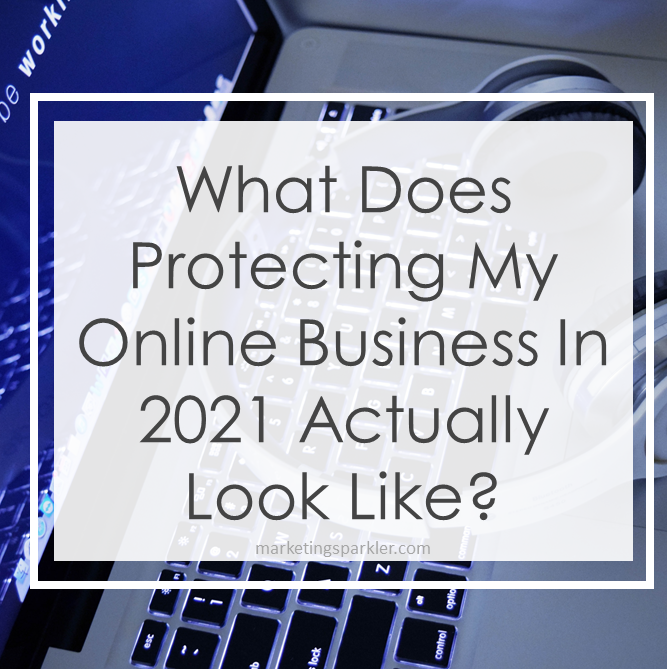The growth of e-commerce and digital shopping has been great news for online businesses over the past few years. However, it has also resulted in a rise of criminals wanting to take advantage of them. Your company faces a wide range of virtual threats, such as fraud, identity theft, and cyberattacks. How well have you prepared?
These threats can severely damage an online business. The good news is, any entrepreneur can protect their company so long as the proper precautions are in place.
What Does Protecting My Online Business in 2021 Actually Look Like?
Here’s how you can defend your e-commerce site against common cybersecurity threats.
1. Secure Your Network Properly
Keeping your home or office Wi-Fi network secured, encrypted, and hidden will help prevent attackers from breaking into it. This will also help you keep the data you transfer over it safe from interception and other attacks.
You should also encourage your employees to defend their own systems if they work from home. They can also use a VPN (virtual private network) if they’re connecting to your office network from afar. Even if they’re not, VPNs can keep work-related online traffic safe from prying eyes.
If your business has a physical location and you want to offer Wi-Fi access to your customers, you must provide a separate network from the one your office or employees use. Opening up your company’s system to strangers exposes you to more attacks and can potentially slow down your employees’ internet connections.
Other network security best practices, like using a firewall and creating unique passwords every time, will also improve company wide safety.
2. Always Encrypt Your Data
Many online businesses hold on to sensitive data, like customer passwords, email addresses, and even financial information. If your network gets breached by an outsider, hackers will be able to access this information at will. This can lead to fines, lost business, and compromised trust in your brand.
Encrypting this data allows you to effectively place it under lock and key — scrambling it so only users with the proper authorization can read and use it. In practice, this means that even if hackers break into your network, they may not be able to use the information they make off with.
Encryption is a simple procedure, but one that not every business takes advantage of. Do it if you are concerned about the security of the customer data you store on your servers.
3. Back Up Key Information Regularly
Essential files and important information can sometimes become corrupted or get deleted through network breaches and simple human error.
As a result, many large businesses maintain regular backups of their most important information. Use these backups to minimize the downtime and expenses that can come from losing data.
Having backups in place can also protect you from ransomware attacks. These attacks involve an outsider holding your files hostage in exchange for cash. You won’t have to worry about losing important information forever, or paying a ransom, if you always have reliable backups available.
4. Create and Enforce a Consistent Security Policy
It’s generally good practice to make sure you can wipe company devices remotely as needed, manage network access at will, and constantly monitor for potential threats. A good cybersecurity hygiene checklist can help you here — and provide some guidance to establish the basics of your business’s online safety policy.
You and your team should also keep track of where sensitive business information — like passwords and financial information — is stored and plan how you will keep it from falling into the wrong hands.
For example, what do you do with old devices as they’re decommissioned? Do you wipe their drives and log them out of business accounts before recycling, reselling, or trashing them? Taking these steps can prevent a data breach.
5. Keep All Software and Devices Updated
Regular security updates to software and hardware ensure operating systems and tools remain as protected as possible against emerging cyber threats and security bugs. Keeping the tools you use up to date is one of the best ways to prevent a breach.
It’s also critical to update any Internet of Things (IoT) devices you have at work — like internet-connected thermostats, smart lighting, speakers, and other smart technology. These items don’t always have the best security features, and failing to update them can make them even more vulnerable to outside attacks.
6. Conduct Ongoing Training and Research
Many attacks aren’t that technologically advanced. Instead, they rely on social engineering to break into company networks.
Phishing attacks are one of the most common types of cyberattacks. This is where hackers pose as a trusted source, like a big-name company or bank. They encourage a target to hand over important information, like a password, or download malicious attachments that may give a hacker access to the company network.
While the tech you use is important, ongoing training and research are essential if you want to keep your business safe. Educating employees on common and emerging cyberattacks, and dedicating time to learn more about safety practices, will help you defend your business against the online threats you’ll likely encounter in the wild.
Protecting Your Online Business From Digital Threats
Online businesses face a wide variety of threats — but with the right practices, you can work to protect your company from harm. Accomplishing this feat requires the right balance of a security-minded company culture, constant vigilance from frontline workers and managers, and investments in the appropriate technologies.
Ciao,
Miss Kemya
This is a guest post from Eleanor Hecks, Editor-in-Chief at Designerly Magazine. Eleanor was the creative director and occasional blog writer at a prominent digital marketing agency before becoming her own boss in 2018. She lives in Philadelphia with her husband and dog, Bear.


